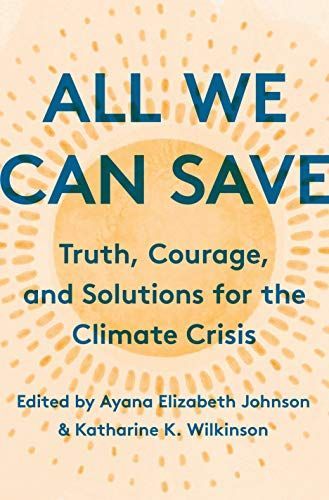
All We Can Save Truth, Courage, and Solutions for the Climate Crisis
"Two powerful phenomena are simultaneously unfolding on Earth: the rise of the climate movement and the rise of women and girls. The People's Climate March and the Women's March. School strikes for climate and the #MeToo movement. Rebellions against extinction and declarations that time's up. More than concurrent, the two trends are deeply connected. From sinking islands to drought-ridden savannas, the global warming crisis places an outsized burden on women, largely because of gender inequalities. In many parts of the world, women hold traditional roles as the primary caregivers in families and communities, and as the main providers of food and fuel, they are more vulnerable when flooding and drought occur; the U.N. estimates 80% of those who have been displaced by climate change are women. Women are on the front line of the climate-change battle, and are uniquely situated to be agents of change--to find ways to mitigate the causes of global warming and adapt to its impacts on the ground. Today, across the world, from boardrooms and policy positions to local communities, from science to activism, women everywhere are using their voices to take leadership and call for action on climate change. This anthology is a collection and celebration of these diverse voices, asking critical questions and providing invaluable insight and solutions. Curated by two climate leaders, this book leads us away from the brink and toward the possibility of a life-giving future"--
Reviews
Boothby@claraby
Bryan Alexander@bryanalexander
Santosh Singh@santosh
Skyler Brown @skylernickel
Andrew Reeves@awreeves
Monicap@insult_the_glory
Kayla@keebbers
Lewis Smith@lewis
Brian Alderman@brianaalderman
Ashlie Reifer@ashlieinhinterland
Chris G@encima